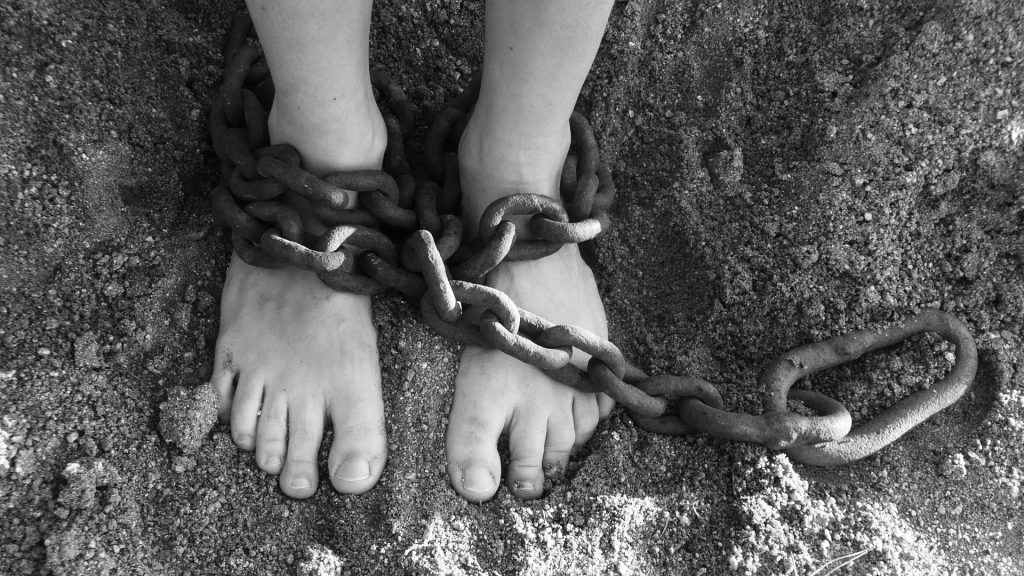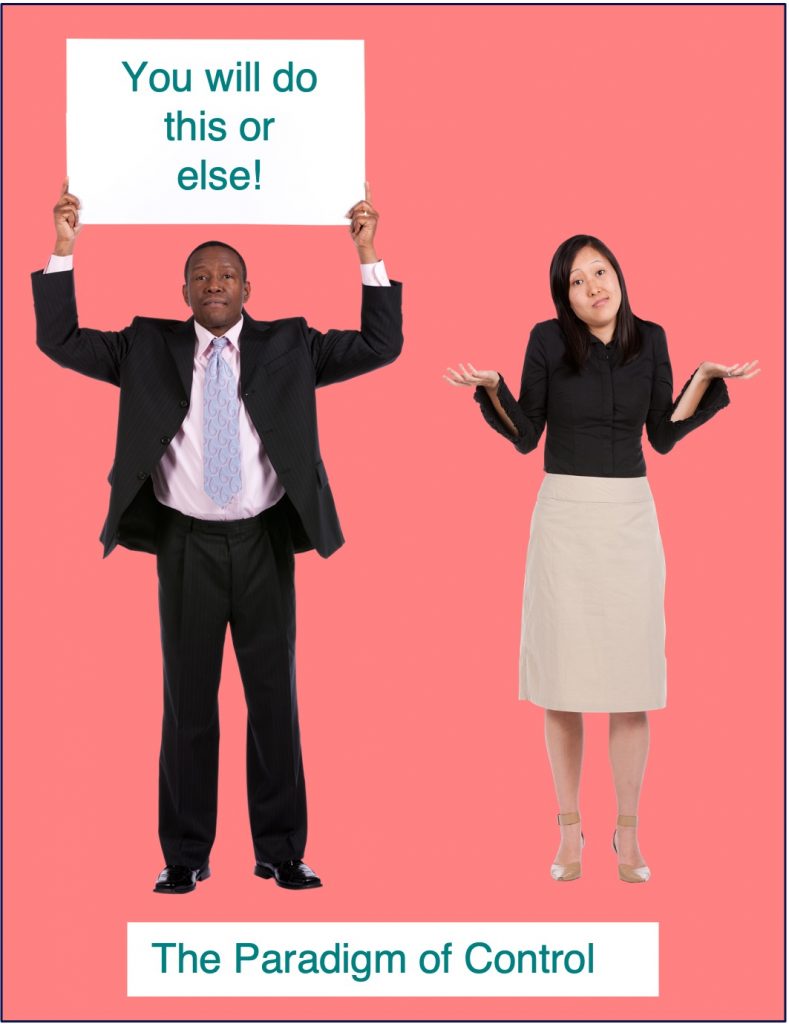
The concept of ‘control’ directly links an underlying need for certainty to the linguistic act of a declaration. This link is predicated on a belief that our declarations can create a definite future outcome. This addresses one of our core concerns, yet it exists in the inherent uncertainty of the future. Nonetheless, we strive for certainty and we hope for certainty through control.
To recap, control has been defined as:
Control = Awareness + Choice
In this definition, control requires our declarations (choices) to be unequivocally validated and we can only be certain of this when we make a declaration independent of the need for another’s declaration of authority. In other words, we are in control when we can do something independent of others. If others’ declarations of authority are required, then we are not in the domain of control as the outcome of any declaration is not assured; rather we are in the domain of ‘influence’. This concept means someone controls only what he or she does and then only when he or she able to make declarations in awareness rather than acting in transparency.
However, in human societies, the concept of control is nearly always extended to controlling others. A person is expected to be in control of the project, control of their children, the process and so on. If we are to control others then they MUST accept our declarations and, as a result, the future as we want it to be. So, to control others, we must find some means to force them to adopt the choice we make for them.
This approach to creating personal authority is defined as the ‘Paradigm of Control’.
However, those seeking to control others always face the same challenge – others can always decide whether to grant authority or not. Hence the strategies of the Paradigm of Control all lead to putting others into a point of choice where the speaker’s choice is made in the context of options offered by the speaker and designed to make the speaker’s choice seem the only option.
The Paradigm of Control is evident to each of us from a very early age. In those days, our authority figures, normally our parents, sought to control our behaviour and used various strategies to do so. They might seek to manipulate us by offering a treat if we clean our room or threaten punishment if we did not do what we were told. If we persisted in the face of a threat, then it is likely we would be punished making it more likely that the next time we were threatened then we would fall into line.
Neither of these approaches is particularly aligned with a sense of care for the others involved, even though the speaker may have the interests of others at heart. As a result, the Paradigm of Control tends to undermine assessments of trust creating unhealthier relationship dynamics.
The Paradigm of Control generally takes one of two basic approaches – threat or manipulation.
Force or Threat
The use of force or threat is a common means of generating personal authority. Our safety is a core concern and the use of force or threat impels us to choose between protecting ourselves or those we care about and the path being demanded of us. If we believe we can be physically or psychologically hurt or lose something important to us, then we may well allow others to make declarations for us as a lesser of two evils. In these situations, we are not making a choice about the spoken declaration itself rather the choice relates to the impact of the potential damage we may suffer. The application of force or threat can show up along a broad spectrum of approaches from raising one’s voice to threats and ultimately physical violence.
Any situation where an individual gives authority to another out of a desire not to suffer at their hands speaks to the use of force or threat. Most parents have regularly used some sort of threat to get their children to do something they want them to do. With that in mind, it should come as no surprise that the first way in which many children seek to establish their authority with others is through the use of threat or force. It is also not surprising that at some point in their development, normally their teens, many children start to use the same tactic in reverse leading to some ugly confrontations with their parents.
This pattern may continue through life. Even though, many of us might not like to think we do it, nearly all of us use force or threat at times. It is important to remember that when we do so, we are not only impacting our relationships but the other person’s sense of their own dignity – we damage them.
When someone holds a position of collective authority, it is common for them to use their authority as the context for an explicit or implicit threat to force a declaration of personal authority. A threat from your boss carries with it the strong possibility of being damaged in some way. This is a widespread phenomenon and the cause of much angst and stress in the workplace.
Manipulation
The other approach often found in the paradigm of control is manipulation. Direct methods of manipulation may be seen in such behaviours as bribery, forceful arguments, providing partial information or lying, or indirect methods of manipulation such as emotional blackmail where the speaker seeks to create a sense of fear, obligation or guilt.
The strategies of manipulation are numerous and widely used and I do not wish to go into great depth about them. Suffice to say, these strategies are all geared towards the listener validating the speaker’s declaration.
Ultimately those using the Paradigm of Control are focusing on removing the capacity of the other person to choose anything other than the speaker’s choice.
On the surface, some of these strategies of force and manipulation seem valid in certain situations. After all, how do we deal with widely differing points of view in our society other than through debate and, ultimately, coming to one point of view as opposed to another? Or how do we deal with people who seem to want to hurt or damage others? There is no easy answer here as we are getting into the realms of ethics and moral dilemmas. However, it is useful to recognise that the Paradigm of Control will create winners and losers and, to varying degrees, fracture relationships and people’s self-worth.
